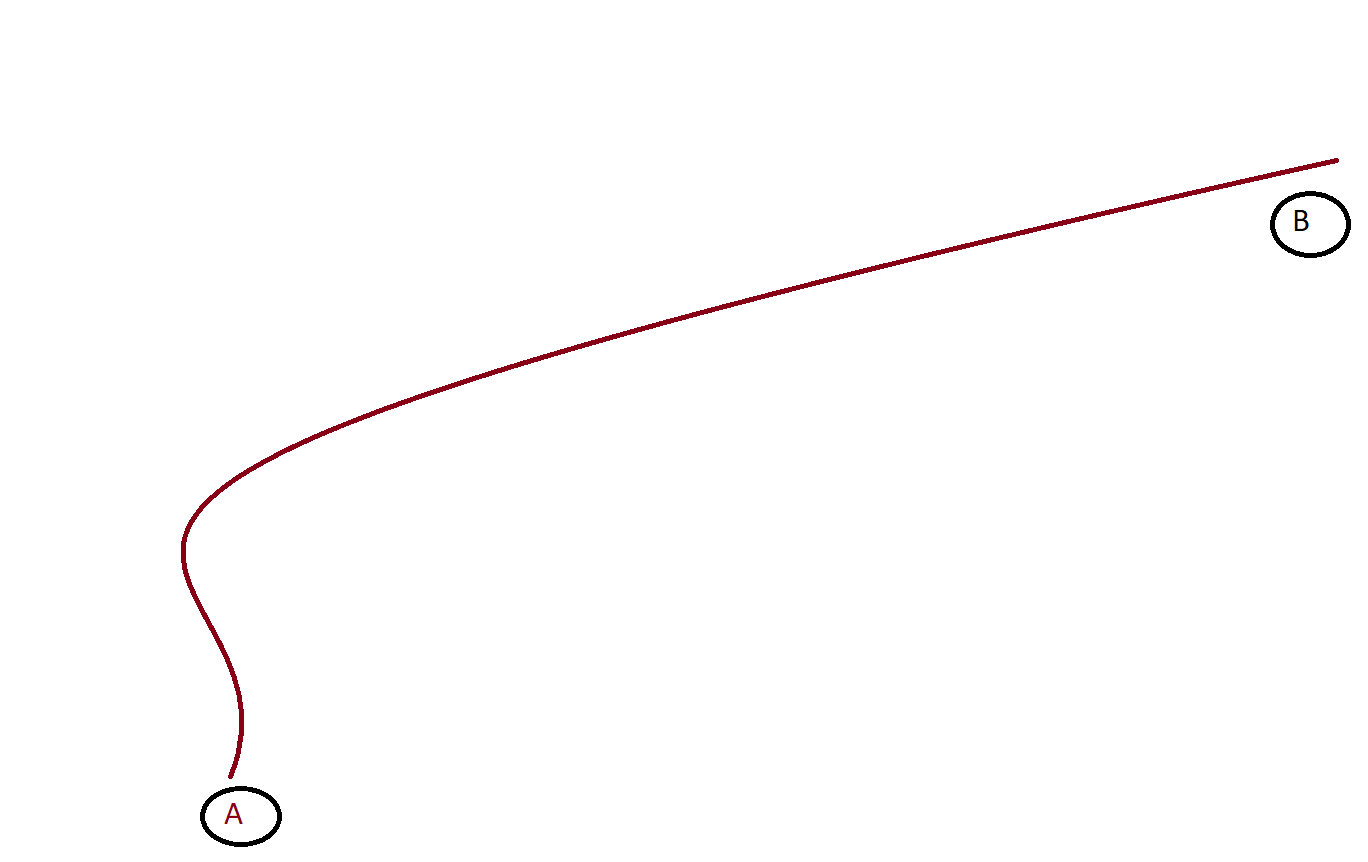
I have a line starting at (A) and ending at (B), consider it's a 50m distance
I may be at either (A) or (B). Using a nieghbourfinder , I know this line is there. How do I know at which end I am.
Please advise. Expect your feedback
Gosh, my professor always used to say to me, it all depends on which end of the stick you are in :). Now I am still trying to figure it out.




